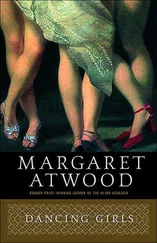“Not a bad day,” said Pollard, speaking through the gates to Max. “They really aren’t bad kids, if you’d just get to know them.”
“I know them plenty now,” said Max.
He watched the police car drive off, then turned back up the driveway.
He’d have to wait a while, he knew, until the dusk could grow a little deeper, before he started looking for the bomb. There would be watchers outside the fence. It would be just as well if they didn’t know that he had found it. It might serve a better purpose if they could be left to wonder if it might have been a dud. For one thing, it would shake their confidence. For another, it would protect young Billy Warner. And while Max could feel no admiration for the kid, Billy had been useful in the past and still might be useful in the future.
He went down to the patio and crawled through the masking shrubbery until he was only a short distance from the oak.
He waited there, watching the area out beyond the fence. There was as yet no sign of life out there. But they would be out there watching. He was sure of that.
The dusk grew deeper and he knew he could wait no longer. Creeping cautiously, he made his way to the oak. Carefully, he brushed away the grass and leaves, face held close above the ground.
Halfway around the tree, he found it—the newly upturned earth, covered by a sprinkling of grass and leaves, and positioned neatly between two heavy roots.
He thrust his hand against the coolness of the dirt and his fingers touched the metal. Feeling it, he froze, then very slowly, very gently, pulled his hand away.
He sat back on his heels and drew in a measured breath.
The bomb was there, all right, just as he had suspected. But set above it, protecting it, was a contact bomb. Try to get the time bomb out and the contact bomb would be triggered off.
He brushed his hands together, wiping off the dirt.
There was, he knew, no way to get out the bombs. He had to let them stay. There was nothing he could do about it.
No wonder Stony’s eyes had shown a gleam of triumph. For there was more involved than just a simple time bomb. This was a foolproof setup. There was nothing that could be done about it. If it had not been for the roots, Max thought, he might have taken a chance on working from one side and digging it all out. But with the heavy roots protecting it, that was impossible.
Stony might have known that he knew about it and then had gone ahead, working out a bomb set that no one would dare to mess around with.
It was exactly the sort of thing that would be up Stony’s alley. More than likely, he was setting out there now, chuckling to himself.
Max stayed squatted, thinking.
He could string a line of mesh a few feet inside the tree, curving out to meet the auxiliary fence on either side. Juice could be fed into it and it might serve as a secondary defense. But it was not good insurance. A determined rush would carry it, for at best it would be flimsy. He’d not be able to install it as he should, working in the dark.
Or he could rig the tree with guywires to hold it off the fence when it came crashing down. And that, he told himself, might be the thing to do.
He got up and went around the house, heading for the basement to look up some wire that might serve to hold the tree.
He remembered, as he walked past the short wave set, that he should be sitting in on the regular evening check among the nearby strongholds. But it would have to wait tonight.
He walked on and then stopped suddenly as the thought came to him. He stood for a moment, undecided, then swung around and went back to the set.
He snapped on the power and turned it up.
He’d have to be careful what he said, he thought, for there was the chance the Punks might be monitoring the channels.
John Hennessey, custodian of the Curtis stronghold, came in a few seconds after Max had started calling.
“Something wrong, Max?”
“Nothing wrong, John. I was just wondering—do you remember telling me about those toys that you have?”
“Toys?”
“Yeah. The rattles.”
He could hear the sound of Hennessey sucking in his breath.
Finally he said: “Oh, those. Yes, I still have them.”
“How many would you say?”
“A hundred, probably. Maybe more than that.”
“Could I borrow them?”
“Sure,” said Hennessey. “Would you want them right away?”
“If you could,” said Max.
“Okay. You’ll pick them up?”
“I’m a little busy.”
“Watch for me,” said Hennessey. “I’ll box them up and be there in an hour.”
“Thanks, John,” said Max.
Was it wrong? he wondered. Was it too much of a chance?
Perhaps he didn’t have the right to take any chance at all.
But you couldn’t sit forever, simply fending off the Punks. For if that was all you did, they’d keep on coming back. But hit back hard at them and they might get a belly full. You might end it once for all. The trouble was, he thought, you could strike back so seldom. You could never act except defensively, for if you took any other kind of action, the police were down on you like a ton of bricks.
He licked his lips.
It was seldom one had a chance like this—a chance to strike back lustily and still be legally defensive.
IV
He got up quickly and walked to the rear of the basement, where he found the heavy flexible mesh. He carried out three rolls of it and a loop of heavy wire to hang it on. He’d have to use some trees to stretch out the wire. He really should use some padding to protect the trees against abrasion by the wire, but he didn’t have the time.
Working swiftly, he strung the wire, hung the mesh upon it, pegged the bottom of the mesh tight against the ground, tied the ends of it in with the auxiliary fence.
He was waiting at the gates when the truck pulled up. He used the control box to open the gates and the truck came through. Hennessey got out.
“Outside is swarming with Punks,” he told Max. “What is going on?”
“I got troubles,” said Max.
Hennessey went around to the back of the truck and lowered the tail gate. Three large boxes, with mesh inserts, rested on the truck bed.
“They’re in there?” asked Max.
Hennessey nodded. “I’ll give you a hand with them.”
Between them they lugged the boxes to the mesh curtain, rigged behind the oak.
“I left one place unpegged,” said Max. “We can push the boxes under.”
“I’ll unlock the lids first,” said Hennessey. “We can reach through with the pole and lift the lids if they are unlocked. Then use the pole again to tip the boxes over.”
They slid the boxes underneath the curtain, one by one. Hennessey went back to the truck to get the pole. Max pegged down the gap.
“Can you give me a bit of light?” asked Hennessey. “I know the Punks are waiting out there. But probably they’d not notice just a squirt of it. They might think you were making just a regular inspection of the grounds.”
Max flashed the light and Hennessey, working with the pole thrust through the mesh, flipped back the lids. Carefully, he tipped the boxes over. A dry slithering and frantic threshing sounds came out of the dark.
“They’ll be nasty customers,” said Hennessey. “They’ll be stirred up and angry. They’ll do a lot of circulating, trying to get settled for the night and that way, they’ll get spread out. Most of them are big ones. Not many of the small kinds.”
He put the pole over his shoulder and the two walked back to the truck.
Max put out his hand and the two men shook.
“Thanks a lot, John.”
“Glad to do it, Max. Common cause, you know. Wish I could stay around …”
Читать дальше












